The secret to peak performance with Ben Ryan from Brentford Football Club
Moments That Matter | By | 23 Feb 2024 | 7 minute read

Ben Ryan is no stranger to operating at an elite level. As Performance Director at Brentford Football Club, he’s helping the team reach new sporting heights – on the field and behind the scenes. For you sports fans out there, the name might ring a bell. Before his move to the Premier League, he was a big name in Rugby Union, having coached the Fiji national rugby sevens team to their first Olympic Gold in Rio.
We sat down with Ben to talk about Moments that Matter and how he helps high-performing teams find their new best.
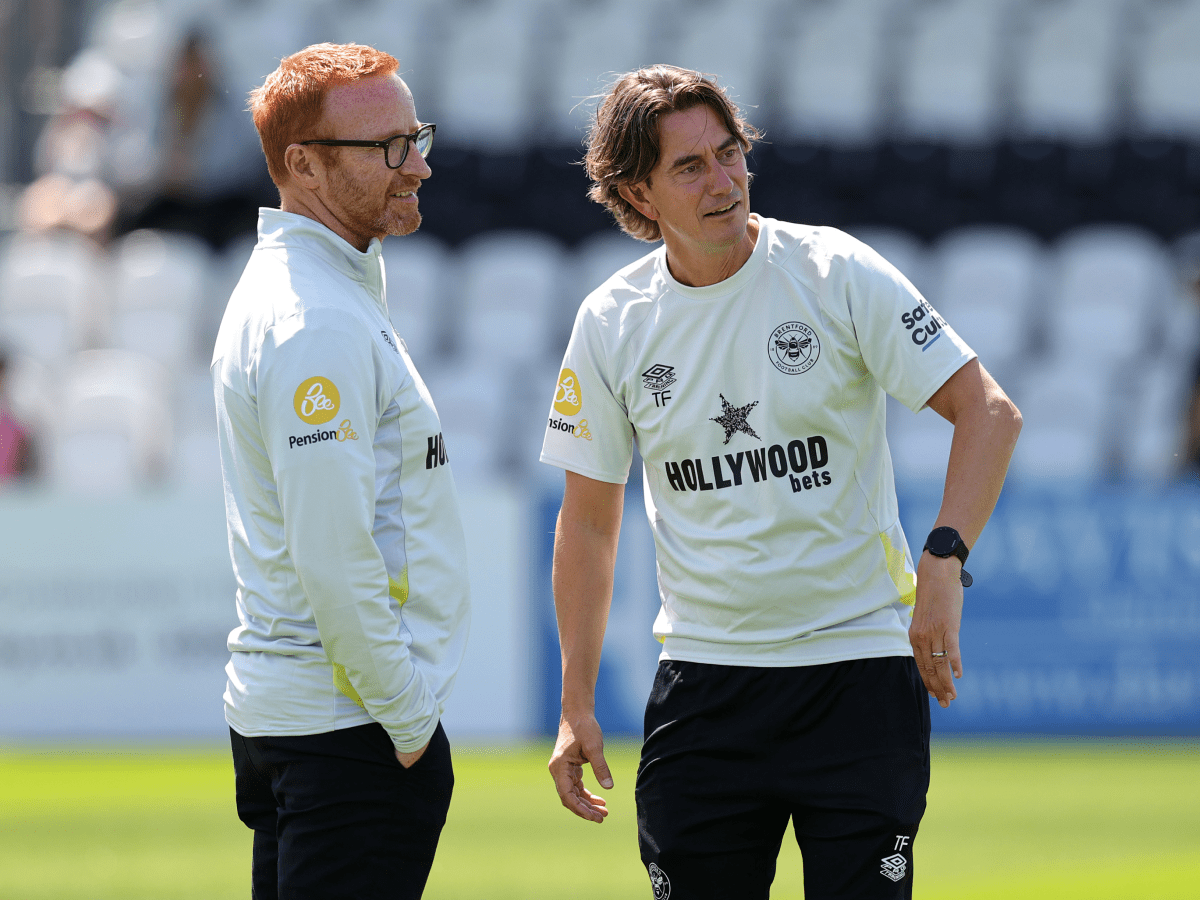
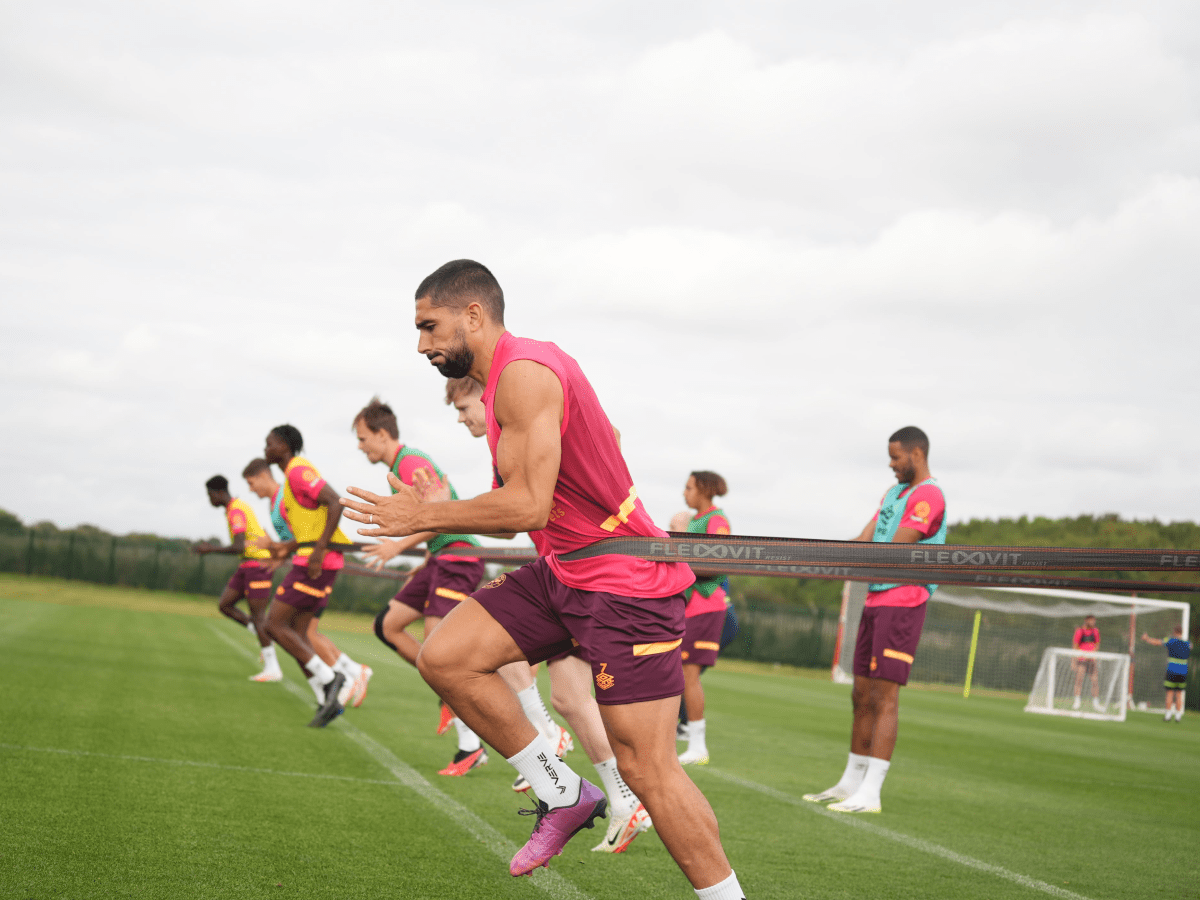
Performance at an elite sporting level is a high-stakes game. What do you focus on as Brentford’s Performance Director?
There are many factors that can affect performance, both at the team level and across the entire club. I oversee anything that impacts performance, including obvious departments like medical and sports science, and player care, as well as less obvious ones like catering, team operations, nutrition, and ground staff. As a director, this also entails having foresight and being involved in the strategic alignment of all these aspects at the club.
Take sports science, for instance. It’s not just about overseeing the sports science for the first team; it’s about assessing our provision across the entire club and defining our philosophy. How do we align everything so that we can create a model that works for everyone? We want everyone to understand what it takes to be at their best as much as possible. Ultimately, my goal is to help everyone reach their peak performance. This applies to our departments as well; we aim to improve every day.
Talk us through your process. How do you fine-tune that performance ladder?
Whenever I start a new job, the first thing I do is spend time walking the floor to get a good look at what’s going on. Not making any spotlight decisions – just observing how people are operating. The second phase is analyzing it and assessing where each department stands in terms of performance. You look at it and go, “Okay, if the line represents world-class behavior, where are they? Below or above the line? If they’re below it, how far below are they and why?” Then, you communicate these observations to the team, highlighting the opportunity to improve.
Sometimes there might be a conversation about providing more support while they’re below the line. Once they get above the line, it’s about handing over control and empowering them to decide on the department’s direction. You establish clear guidelines and timeframes, and maintain continuous feedback.
At the club, we’ve set up a pilot program for more frequent appraisals, doing them monthly instead of quarterly or annually. These short and sharp sessions focus on simple questions like how they’re feeling, what the club can do to help, and how they’re progressing with their work, setting objectives and time frames.
Research supports that this approach promotes wellbeing because it gives people a voice. That’s how I’ve operated here, and some things have taken quite a long time because you have to see how things play out and give people the opportunity to step up.
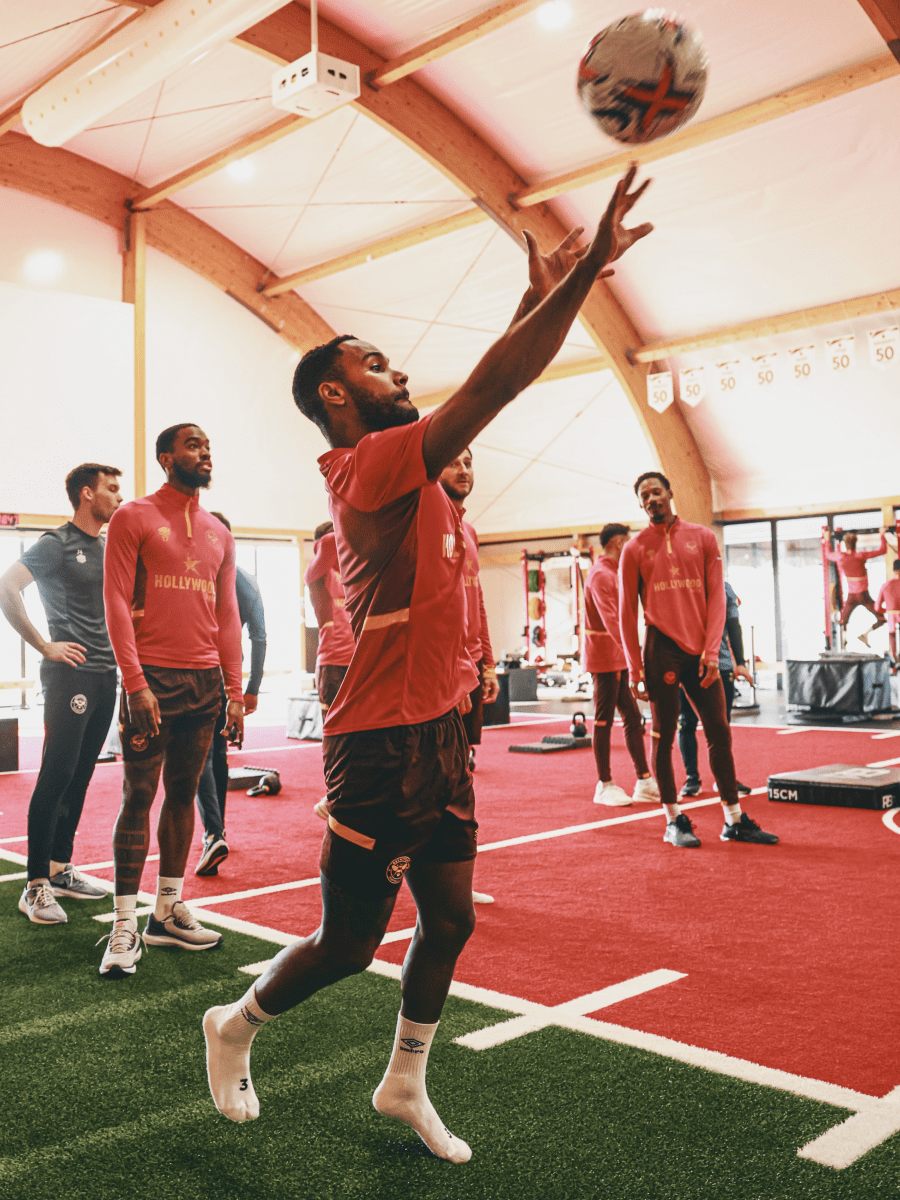
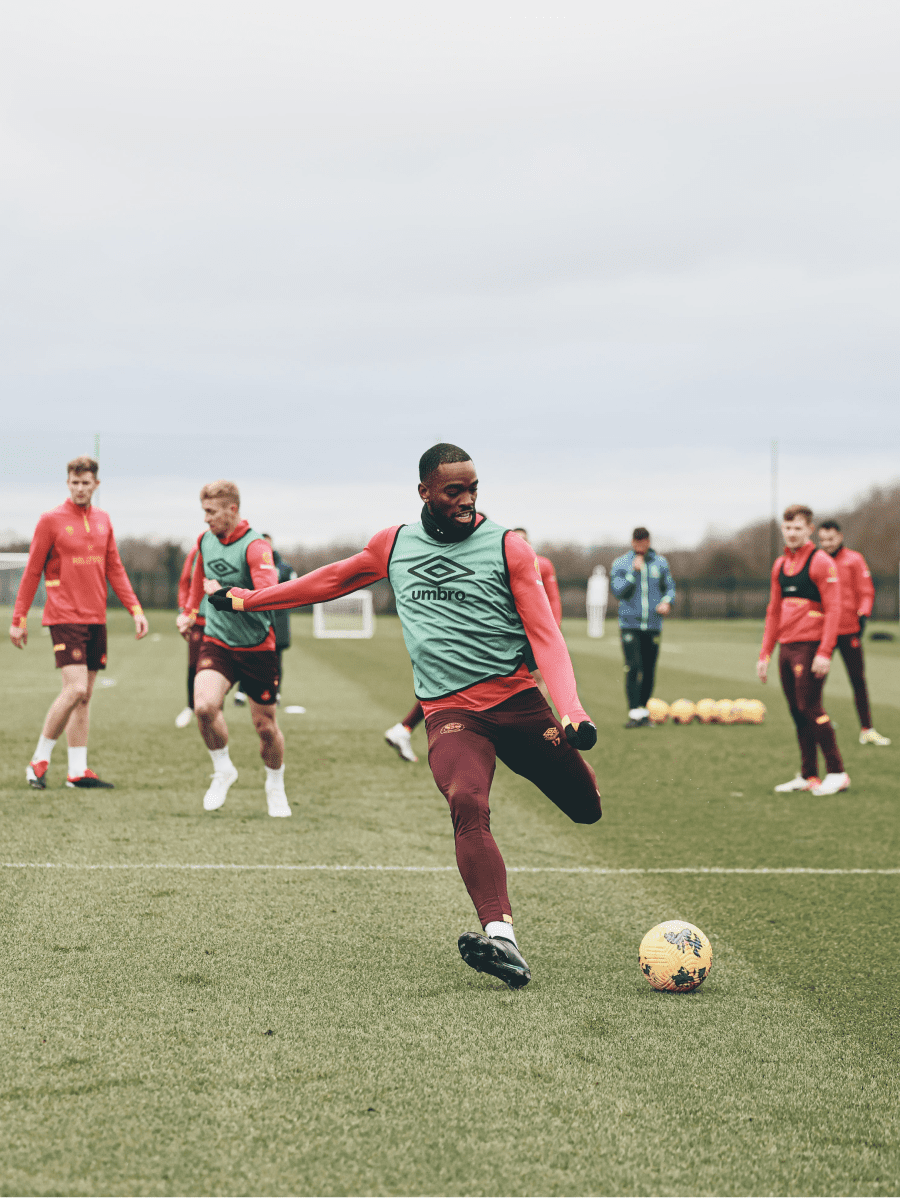
Becoming your best is a learning experience – making mistakes, encountering setbacks, and growing from there. Have you found it the same in your field?
Certainly. Our Head Coach Thomas Frank likes to say – and I don’t know if it’s his or plagiarized – “You win or you learn. There’s no losing.”
Looking back, there are particular moments that have stuck with me when it comes to lessons learned. In my rugby days, we were playing in the Hong Kong Sevens, and it was my first one with Fiji. It was the semi-final, just approaching half time and we had a penalty. As a coach, when the pressure’s on, you stand up and point and you tell them what to do. I was shouting at them, telling them to take what I thought was a pragmatic, safe course to victory. They ignored me… and took a path that actually earned us an even bigger win.
It sounds like a small moment, but it made quite an impact for me. I didn’t want to be the kind of coach who thought they had all the answers. I had to accept that there’d be times when I’d let them play, and we’d make mistakes. If I was always going to be pointing and telling them what to do, then we’d never really grow as a team and the players are never going to feel like they have the autonomy to make decisions.
In modern sport, players are kept on a tight schedule. Maybe we need to loosen the reins a bit more to get the best out of them.
“If I was always going to be pointing and telling them what to do, then we’d never really grow as a team and the players are never going to feel like they have the autonomy to make decisions.”
Ben Ryan, Performance director, Brentford FC
What are the defining moments of a game for you?
In high-performance sports, you’re always identifying opportunities for change. It’s not just about analyzing data after the fact, but recognizing signals that allow for interventions before problems escalate. You plug into your memory and think upstream about what you’ve done well – or poorly – that might have contributed to the current situation. Then, you can make interventions, recognizing signs that indicate the need for small adjustments.
The key is to always look for opportunities to make changes while there’s still a window. This proactive approach can alter the course of events. For example, after a game it’s easy to see retrospectively that physical performance dropped off in the last 10 minutes, so the opposition managed to score. But the exciting part is identifying opportunities for improvement in real-time. It’s about recognizing where you currently stand and taking action to ensure you achieve the desired outcome.

“The key is to always look for opportunities to make changes while there’s still a window. This proactive approach can alter the course of events.”
Ben Ryan, Performance Director, Brentford FC
When you’re already playing at such a high level, it can start to feel like there are diminishing returns on improvement. How do you find opportunities for growth at Brentford?
Great point. If you’re successful, there’s a genuine feeling of, ‘Well, why are you asking me to change or tweak things when what we’re doing is working?’ You need to have a growth mindset and constantly believe you can always get better. But at the same time, everybody needs to know where they are. If you’re throwing in changes every five minutes, you’ll have an unstable foundation.
I think it’s difficult in the Premier League because everybody feels under pressure, and everyone feels like they don’t want to be the one who admits to being not as good as they could be because that will show weakness. And then, before you know it, you’re out the door and being replaced.
In my experience, if you want to keep growing as an organization, open-mindedness is key. Sure, we’re in a good place. But what is it that we can do better? Don’t just have reviews if you’ve lost a game or had a load of injuries. It’s just as important to have positive reviews when you’ve won a game and unpack that. If you have them consistently and constantly, it becomes knitted into your day-to-day culture. Then you’ll be in good shape as an organization.

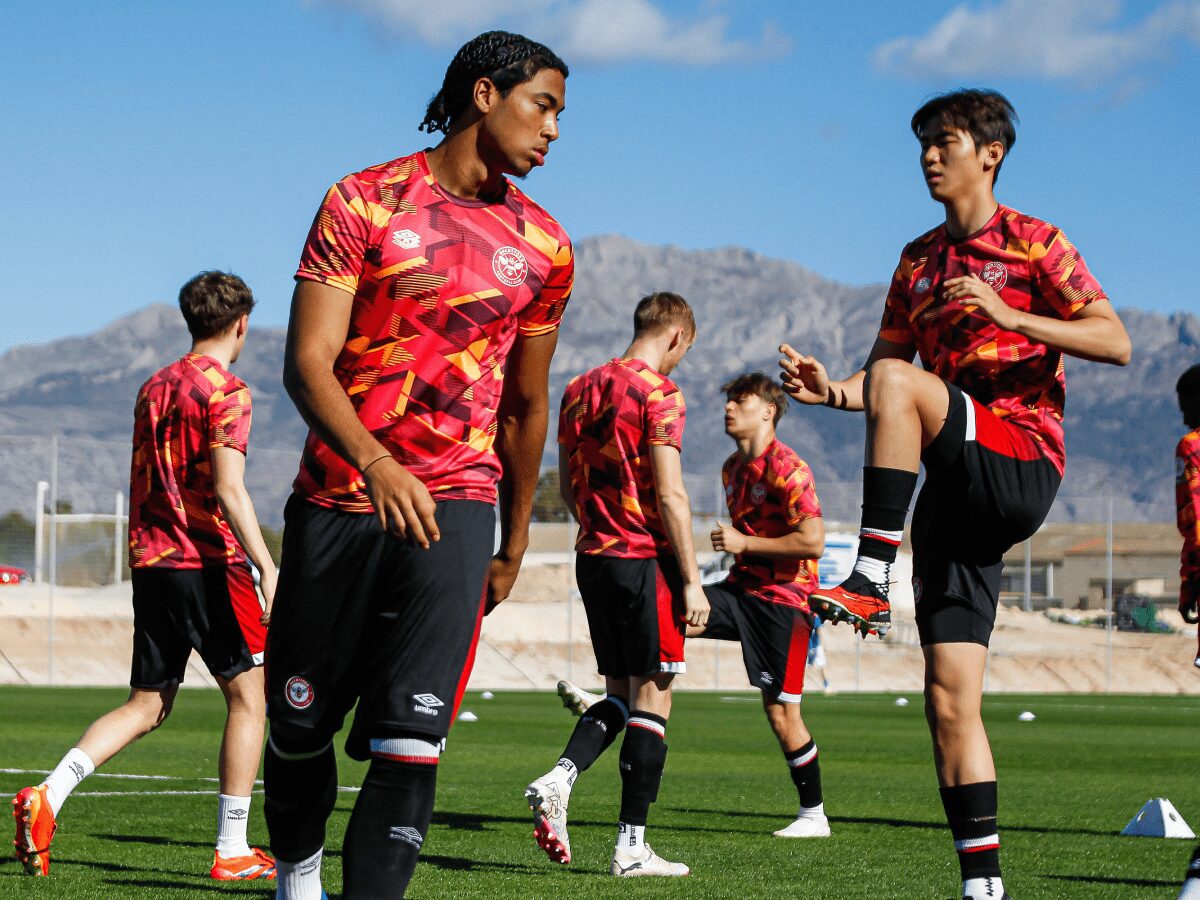
“If you’re successful, there’s a genuine feeling of, ‘Well, why are you asking me to change or tweak things when what we’re doing is working?’ You need to have a growth mindset and constantly believe you can always get better.“
Ben Ryan, Performance director, Brentford FC
So much of your success is rooted in your ability to develop strong, meaningful relationships. Do you have tips for leaders on how to do the same?
For me, it’s important that I have touchpoints, especially with my direct staff that I manage, but in general as well. At the beginning of a week, I’ll do a little quadrant where I’ve got my formal, informal, structured, and unstructured interactions.
So I always review at the end of the week: ‘Have I been in my office too much this week? Have I had enough touchpoints? Are there any gaps that I need to fill in next week?’ I think it’s important for you to consider that as a leader. I was lucky enough to meet Amy Edmondson (who pioneered psychological safety) right in those early days when nobody really knew what it was about.
It’s so important to feel valued and like you have a voice. And it’s still really relevant for leaders to constantly remind themselves of that and occasionally admit that they could do things better as well.
If you nurture this environment, then reverse osmosis will start to happen. People will knock on your door and start to tell you things that they might not have told you. And you’ll start to get ahead of the curve on how the culture is.
We’ve talked about the learnings, now for the wins. The highs are high in professional football. Where do you find the most satisfaction?
I get a personal kick out of seeing growth – whether it’s organizational growth, a player’s growth, or staff growth. So if I see them coming back from injury and smashing it, or a staff member who has been on special measures where you think maybe they’re not gonna make the grade, and suddenly they start shining and blooming, I get a lot of satisfaction out of that. And then I want to acknowledge it and tell them.
While I’m not personally a big fan of being told I’ve done a good job, I like telling other people if they have and pointing it out. If we’ve won a game, a big match, then I love seeing everyone else celebrating. But for me, genuine happiness isn’t necessarily about winning or losing football matches; it’s seeing people getting better and making the most out of their ability.
Moments That Matter is a series where we chat to those at the top of their fields about the seemingly small steps that, when combined, have a major impact on their life and career. We don’t often look back on our day-to-day, but it’s these very moments that ladder up to something more. At SafetyCulture, we’re grounded in practice – the details that go into the doing.
Learn more about Brentford FC
- How Brentford FC is using SafetyCulture behind the scenes
- Moments that Matter with Brentford’s Chris Haslam
- WATCH: How Brentford FC uses Issues to create the best match-day experience
Important Notice
The information contained in this article is general in nature and you should consider whether the information is appropriate to your specific needs. Legal and other matters referred to in this article are based on our interpretation of laws existing at the time and should not be relied on in place of professional advice. We are not responsible for the content of any site owned by a third party that may be linked to this article. SafetyCulture disclaims all liability (except for any liability which by law cannot be excluded) for any error, inaccuracy, or omission from the information contained in this article, any site linked to this article, and any loss or damage suffered by any person directly or indirectly through relying on this information.





